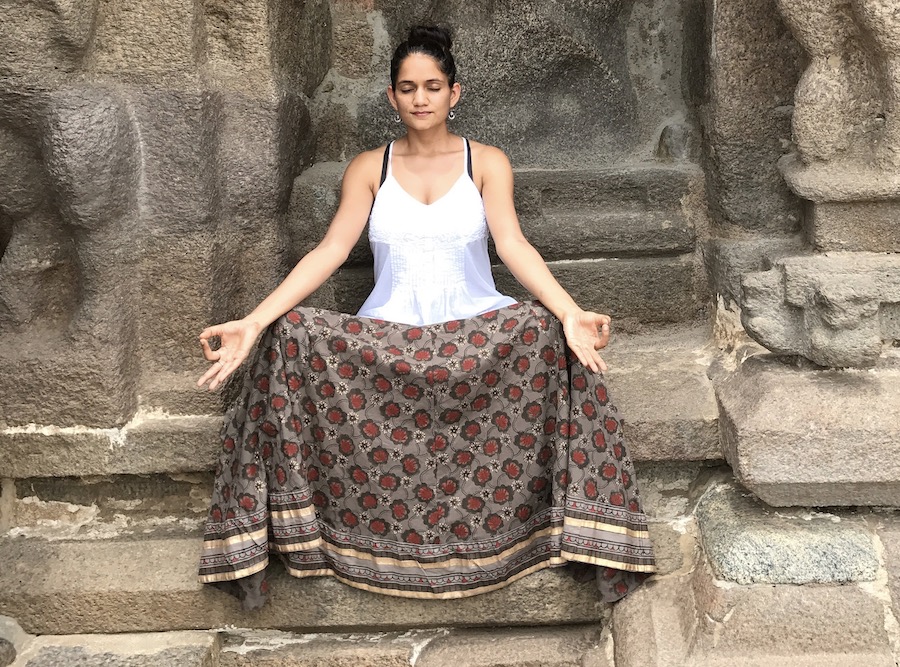I was recently reading a Q&A on quora where someone had asked for recommendations on simple, easy to read books on Vedas and Upanishads. One user said that it is not possible to read these texts unless you know Sanskrit.
It is a common statement that I’ve heard consistently since I first developed an interest in Indian Philosophy. For the longest time, I even believed it. I took up language courses and started reading the texts in Sanskrit. I’d studied the language as a child, so it wasn’t as tricky. But, I also realized that learning a new language and then exploring the texts all over again is neither easy nor accessible. It is a privilege. And Upanishads or any aspect of our philosophy should not be a matter of privilege.
Is it essential to know Sanskrit to read the Upanishads and other texts?
Language does not limit the understanding of Indian Philosophy. It is limited by the lack of an open mind and strong preconceived notions or judgments. Given that the philosophy is intuitive, universal and a part of our essential nature – it cannot be limited to the understanding of specific people in terms of language or caste or place of origin. Someone who knows Sanskrit may be better equipped to understand it, but it is not necessary.
The fact that someone wants to read a simplified version of these texts ought to be encouraged and celebrated. It is by no way logical to wait to learn the language before even being introduced to these texts. I wish more people would have this question in their mind because many engage in various practices in the name of sacred text without having read a word from them. Even if they’ve read, they’ve not really ventured deeper into understanding them.
Stalling someone from trying to grasp these texts and directing them to study Sanskrit instead is slightly demotivating and irrelevant. So, without further delay let’s get started.
Recommended English translations of Upanishads, Darshanas and Vedas
- Swami Lokeshwarananda’s books on Upanishads at the Ramakrishna Math:
A few years ago I was at the Ramakrishna Math Book shop flipping through various Upanishad translations. I was trying to gauge which one was most readable. I had a whole stack of books and was comparing them side by side. Around then, a monk walked up to me and decided to help out. He understood my requirement and picked out Swami Lokeshwarananda’s translations. He said they were the best for beginners. Indeed, I found them very useful.
- Ten Upanishads of Four Vedas by Ram K Piparaiya:
It is a wonderful and well-researched summary of the critical Upanishads. It does not have actual Sanskrit text, but it is an excellent reference book that gives a fascinating and readable overview. Disclaimer: He is my father-in-law, but even if he weren’t, I’d still recommend this book. He passed away last year.
- Upanishads by Patrick Olivelle:
An English translation of 12 principal Upanishads. It is a scholarly book, so it can appear a bit heavy to read. But it just takes a bit of getting used to. Once you get into the flow and get familiar with his style, it picks up momentum on its own.
- An Introduction to Indian Philosophy by Satishchandra Chatterjee and Dhirendramohan Datta:
I accidentally came across this book one day and decided to pick it up. I’m glad I did. You could perhaps read this even before the Upanishads – It talks about the Darshanas and the schools of Indian Philosophy in a very readable manner. Even though both authors are PhDs, they’ve done an excellent job of keeping the book informative and straightforward.
- A history of Indian Philosophy by Surendranath Das Gupta:
This is a phenomenal work by one man across five volumes. Dasgupta was a Sanskrit Scholar and was one of the first Indian authors to compile a text of this nature in modern times. The book is across five volumes, and I’m still reading through them (I’m far from done yet!) but I decided to include it here anyway. They say that the author was working on it right up to his dying day. It was his life’s sacred mission, and I do feel it deserves to be preserved and honored.
- The Vedas by Ralph T H Griffith:
If you really want to read each Vedic hymn translated into English then this is an option. It is one colossal compendium and it’d be better if you find it in a library to flip through before purchasing. It was written in 1896 and is not a book I’d say one could read word by word in a month…let me just quote the author here as he explains it best: “This work is an attempt to bring within easy reach of all readers of English a translation of the Hymns of the Rig Veda which, while aiming especially at close fidelity to the letter and the spirit of the original…”
You can also read my blog titled ~ What are the Vedas – a simple explanation. In it, I give a brief overview of what are the Vedas, their structure, types of hymns, a little bit about the fire ritual along with a quick mention of the Upanishads.
I would also take the liberty to suggest that read any text which interests you – those that naturally appeal to you and those you inherently like. Then move on and find more. It is an ongoing journey. Introspect, contemplate, and most importantly read different perspectives.
Lastly, don’t form strong opinions by merely reading. Remember that Spiritually is meant to make us light, free, friendly, ethical, and all-inclusive. If it makes us dense, quarrelsome, and judgemental, then we have missed the woods for the trees.





